The International 2016 ends with a spectacular grand final
History is made in Seattle.
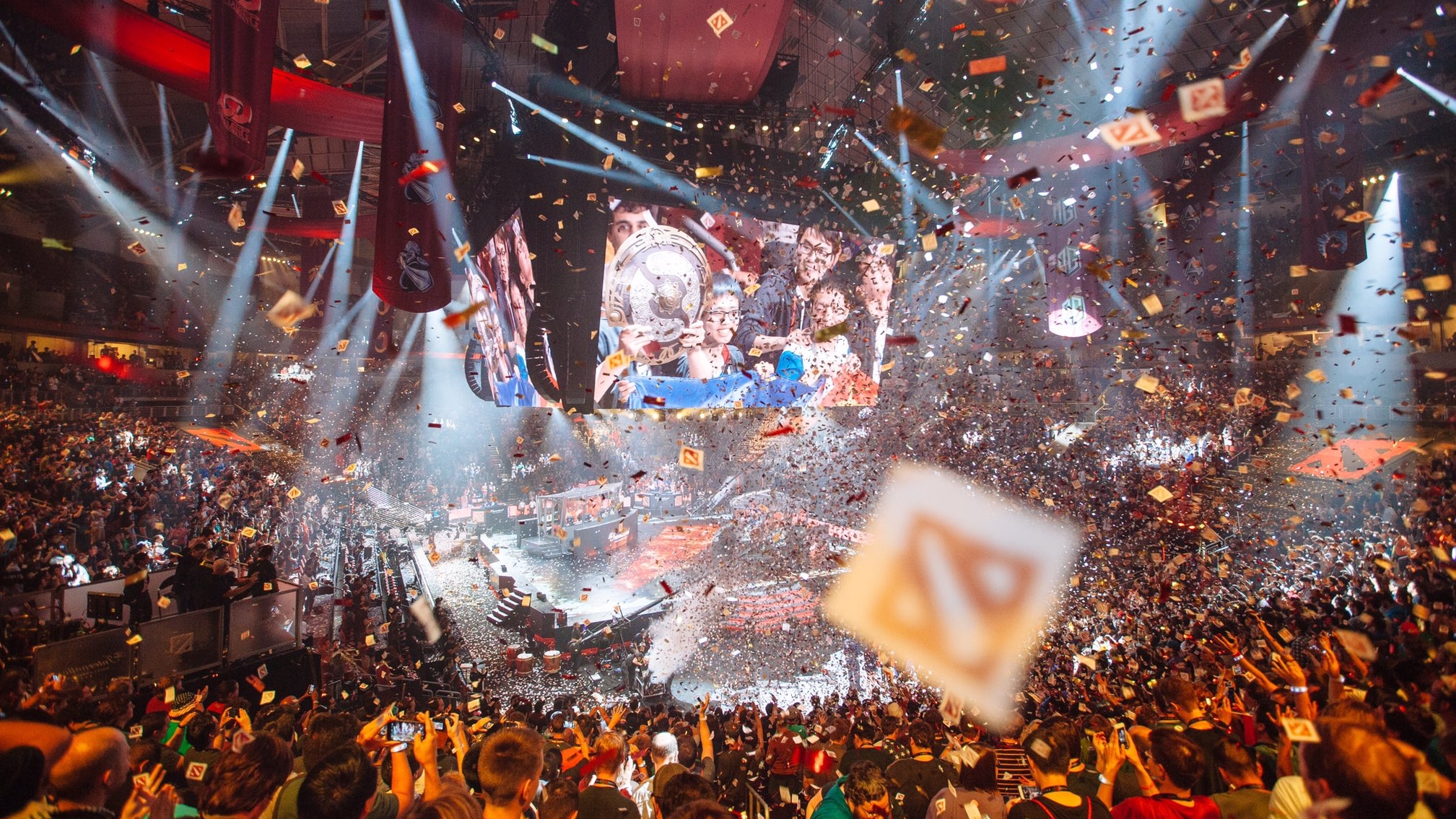
Find all of our coverage of The International, including accessible summaries of each day of play, right here.
Image via the official Dota 2 Twitter account.
The International 2016 is over and Dota 2 has its sixth world champion. This phenomenal tournament showcased some of the most impressive technical skill in the history of the game, along with an unprecedented degree of balance that saw 95% of the hero pool picked or banned. Every day held surprises, and if your bracket predictions weren’t in tatters by the end then congratulations: you’re actually Oracle.
The International is always exciting as a fan of Dota 2, but TI6 was exceptional. The game is in an extraordinary place at the moment, from the metagame to its international competitiveness. Where else would you see every region represented in the top 4 on the world stage? Where else can young unknown talent emerge to challenge the title within the space of eleven months? Dota 2 remains unsolved after this International, a strategic puzzle with no correct solution. Watching teams try, watching many fail and one succeed, has been the highlight of my gaming year so far.
Here’s what happened on the final day.
Lower bracket final: Evil Geniuses vs. Digital Chaos
Scrim partners and rivals, these two teams know each other inside-out and both walked a long road to reach this point. The defending champions, EG’s story at TI6 is one of recovery: after a disappointing year and a late roster switch that made them ineligible for a direct invite, their composure, creativity and execution all shone through when it mattered most.
Digital Chaos arrived in the lower bracket final after the most impressive underdog run in the history of the game. They are a team of rejects and rookies: Misery and w33 from Team Secret, Resolut1on from Empire, with Saksa and Moo arriving from the lower tiers of the international scene. With players from Macedonia, Ukraine, Denmark, Romania and the USA, DC represent the span of western Dota. Almost anyone could claim them—EU players, NA ownership, a CIS carry—and almost everyone did, but regional flag-waving is less important than what DC achieved. Underestimated and sometimes mocked, these players bound together by circumstance, players who had to ask for teams to play with on Twitter after they got booted from their former squads, pulled out the tournament run of their lives.
Keep up to date with the most important stories and the best deals, as picked by the PC Gamer team.
But only one of them would earn a spot in the grand final. EG arguably got the better part of the draft in the first game, with meta favourite Shadow Demon and Universe’s legendary Faceless Void. Their strategy was built around heroes with loads of playmaking potential, which suits EG and the way they like to play Dota. Perhaps taking some hints from Wings 2-0 defeat of EG the day before, however, DC picked up a roster with a lot of sustain: Oracle, Tidehunter, Naga Siren, and Razor with sustained magic damage from Mirana.
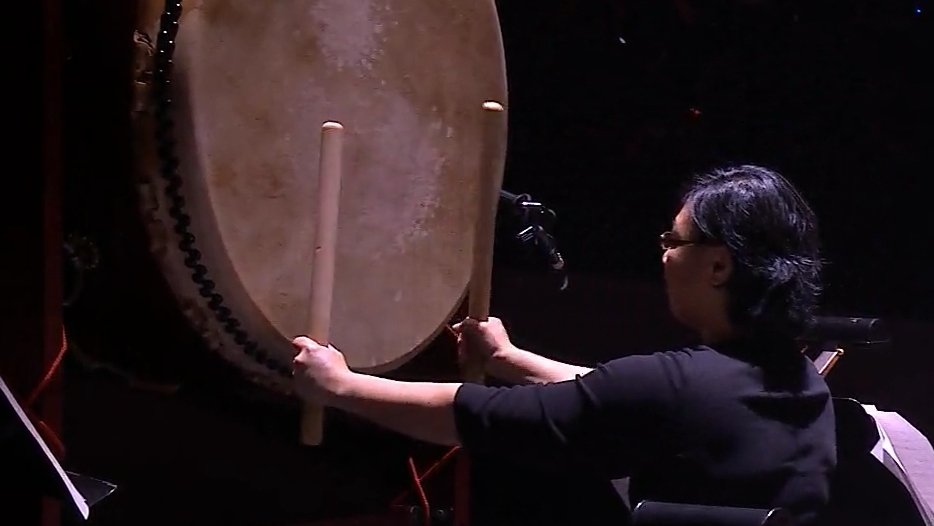
After a spine-tingling live performance of the Dota 2 score, the Taiko drummers—who were also part of the Monkey King reveal earlier in the week—stuck around to soundtrack the pick-ban phase for each game in the grand final. There’s nothing more Dota than live drumming for a character select screen.
After a good start for EG, DC successfully exploited EG’s dependence on long-cooldown ultimates and pushed fights when the defending champions couldn’t reliably defend. EG looked a little shaky in places, too—ceding kills they didn’t need to and occasionally misplaying with those vital ultimates. Establishing a lead, DC were ultimately able to force the issue and close out the game.
The second draft proceeded along familiar lines until right at the end. Facing a durable and heavily-armoured lineup from EG and without a heavy magic damage dealer, DC drafted the twin-headed dragon, Jakiro—one of the six remaining heroes neither picked nor banned by this point at the International. Not only that, but they gave the hero to w33 to be played in the midlane. This was a bold decision, bordering on a running joke—just look at Misery’s face the moment he picks it. Even the referee is laughing.
Mid Jakiro isn’t entirely without precedent, but it’s definitely not part of the current metagame. The pushing power that the dragon provides paid off early for DC, stripping EG of their outer towers by the 26 minute mark. But a series of crucial pickoffs on DC heroes prevented them from closing out the game in the narrow window of time they were afforded to do so. DC had one amazing teamfight in the Dire jungle where everything went their way: EG walked in a straight line into Jakiro’s phenomenal magic damage output which, coupled with a clutch Chronosphere, resulted in a teamwipe in DC’s favour. But DC hadn’t done enough to curtail EG.Fear on one of his signature heroes, Sven.
DC had pulled something out from deep in their pockets for this second game and it simply didn’t work out. EG, however, found new confidence: particularly Fear, whose Roshan and Aegis steal with Sven around the 43 minute mark demonstrated why the hero is so closely associated with him. This was the play that broke the match open for EG, as they strode confidently through DC’s defenses to force a third game.
And what a third game. I don’t think anybody thought we’d see a game top EG vs. EHOME, but, well… expectations don’t have a particularly long lifespan at this year’s International.
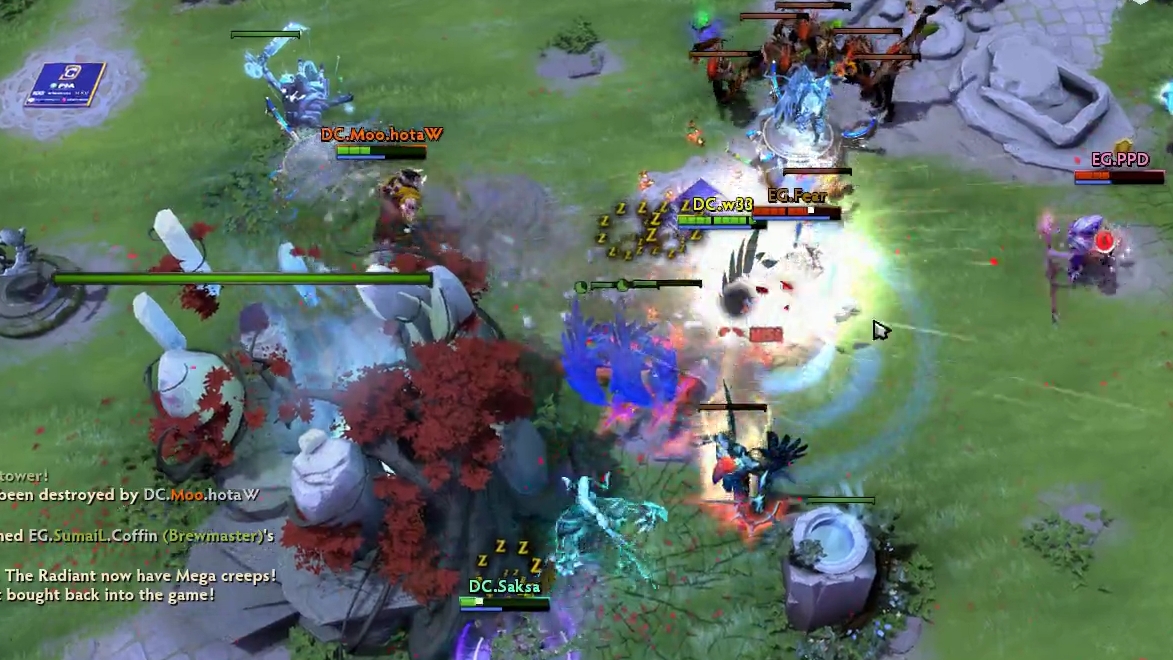
DC.Moo is the right man in the right place at the dramatic conclusion of the EG vs. DC series. His judgement here is just incredible. As EG storm DC’s defenses, he destroys two lanes of barracks by himself in the EG base. He teleports home just in time to help out in the teamfight with Beastmaster’s Savage Roar, then returns to the fountain, buys a Refresher Orb, and ults again to ensure that EG lose this vital fight. In a day of great play, this stood out.
DC picked an aggressive, melee-heavy lineup in Beastmaster, Shadow Demon, Ursa, Kunkka and Slark while EG adapted their playstyle with a five-man-push draft comprised of Elder titan, Tidehunter, Dazzle, Terrorblade and Brewmaster. DC’s brawling draft scored first blood and did well in the lanes, with Sumail’s Brewmaster struggling against w33’s mid Ursa.
EG refused to give any further ground to DC’s aggression, however, gathering up around Terrorblade’s vital Metamorphosis cooldown to push towers and take teamfights. A series of risky overextensions by DC put them further behind and placed the game in EG’s hands. In order to keep their tournament hopes alive, DC resorted to ‘rat Dota’—splitting the map and applying constant pressure in lanes that EG weren’t defending in order to deny their opponent the ability to fully commit to a push.
It was one of the best demonstrations of macro-level strategy seen at this year’s International and, more impressively, it was executed with heroes that aren’t traditionally associated with the style. EG could commit big spells for kills here and there, but they struggled to hold on to map control and vision against DC’s guerilla approach.
EG scored a run of successful Roshan attempts in the midgame but DC managed to prevent them from turning this into a serious advantage. Teamfights started to even out towards the late game, and DC proved able to splitpush and siege quickly as Misery’s support Kunkka developed into an extra core hero. EG reassembled the deathball and stormed down mid, determined to end this series one way or another. Meanwhile, DC.Moo laid siege to the EG base alone.
The defense of DC’s ancient at the 46 minute marks was one of the highlights of this entire event, with both teams throwing everything they had into one teamfight with everything on the line. Repelled once, Fear picked up a Divine Rapier on Terrorblade and prepared to hold the line in his own base. DC’s split push earlier in the game gave them the advantage here, however, and Fear’s own farm could be turned against him with Shadow Demon illusions joining the siege.
Avoiding heroes and going straight for the ancient, DC pulled it off: the defending champion fell, and the underdog advanced to the grand final. This was, in some ways, the most dramatic moment of the day—the finals were fantastic, but two successive base races with Divine Rapiers in play are hard to beat.
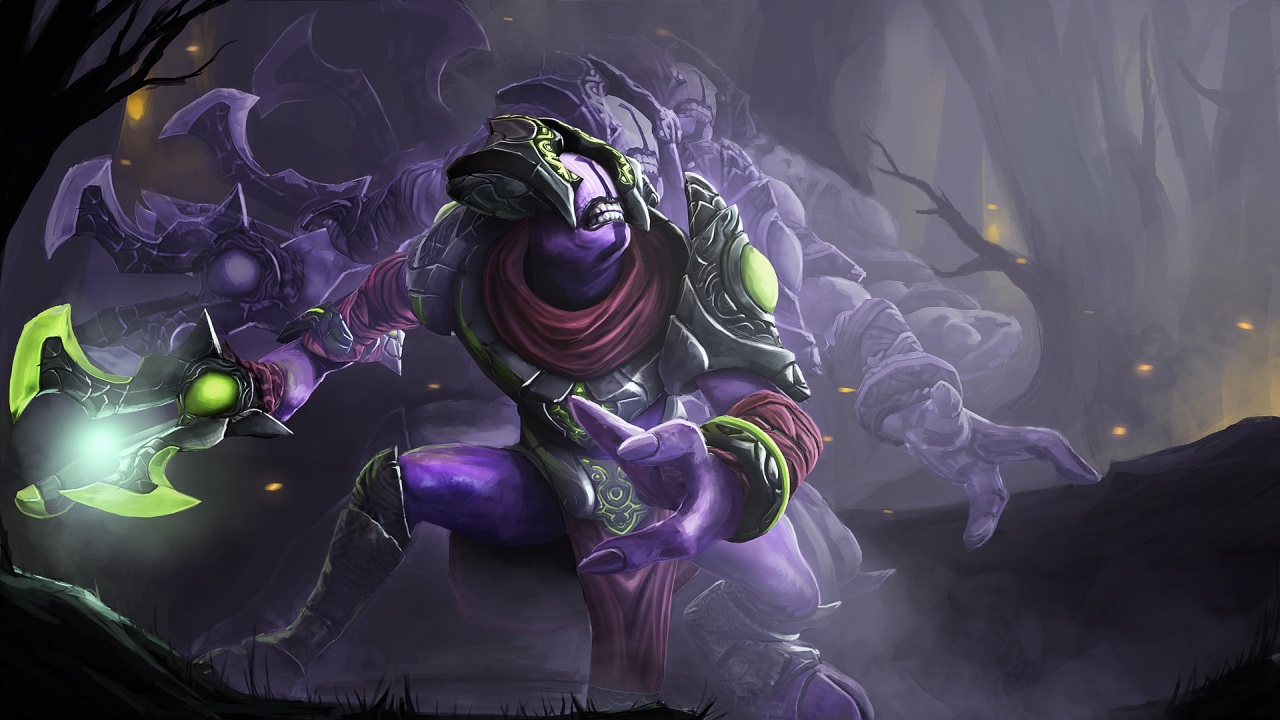
There so much to pick out from Wings’ collective performance over the course of the day, particularly iceice—in a tournament full of god-tier support talent, he still managed to stand out. Innocence emerged again as the best draft strategist in the scene. On the final day, though, it all came down to shadow. A run of absolutely stunning carry performances—including a 20/0/16 K/D/A on Faceless Void—puts him ahead of a competitive field, and deservedly so.
The grand final: Digital Chaos vs. Wings
Wings had the shortest route to the grand final of any team, only ceding a single game in the upper bracket (to DC, in fact). Even so, they only lost that game because they pulled out a Pudge-Techies pocket strat—it was more Wings’ loss than DC’s win. Plus, this kind of creativity in the draft is exactly what got them this far. Founded in August last year, Wings made a name for themselves by having apparently no limit to their hero pool: they transcend the meta, able to play multiple styles of Dota equally well and adapt their approach to their important.
The great thing about this final is that DC had come to demonstrate similar creativity too. Mid Jakiro might not have worked, but DC are a fun team to watch because they’re willing to have fun and try new ideas even when the stakes are this staggeringly high. The fact that we got a final with two teams like this is another testament to the health of the Dota scene: this was no TI4, where one strat trumped everything. This was a battle of creativity and wits to the end.
This was apparent in the first draft, as both teams threw the meta out of the window and drew from the whole pool. Wings grabbed Io and Storm Spirit early while DC went for established favourites in Timbersaw and Keeper of the Light. Wings countered with Silencer and, when DC took Faceless Void, they picked up their fan-pleasing support Pudge as a counter. DC last-picked Skywrath Mage for w33, running a traditional support as a midlaner for the second time in the day.
This time, it went much better. A very fast first blood got w33 off to a great start in lane, and this translated into DC control all over the map. Even when Wings grouped up to take w33 down, he managed to snipe Blink’s Storm Spirit with his ult before conceding the kill. Wings fought back hard, however, focusing on shutting down Moo’s Timbersaw—a hero he was undefeated with at this point in the event. This became a skirmish match into the midgame, with a run of clutch pickoffs for both teams set up by an ongoing war for vision between the supports.
Over time, however, Pudge failed to have the impact that the hero needs to be worth picking over a more reliable Void counter like Naga Siren. Once again, weak links in the draft put Wings at a disadvantage as the game progressed, and DC itemised well against the threat of Wings’ other control options, particularly Global Silence. A clutch pickoff on Storm Spirit and Io opened up Wings’ base at the half hour mark, and DC took the lead in the first game of the best of five.
DC ceded Faceless Void to Wings in game two but picked up counters that they’re very comfortable with: Mirana, Naga Siren, Shadow Demon, Razor. The surprise pick of this draft was Doom, one of Moo’s favourite heroes who was chosen as a counterpick to Blink’s potent Invoker. It was the supports for Wings that really came into their own in this game, however, particularly Innocence’s Oracle—with an aggressive skill build, he made this defensive support work as an offensive roamer.
DC.Saksa put in a strong showing on Shadow Demon and the two teams traded relatively evenly going into the midgame, but Blink recovered from a shaky first game to deliver a stunning performance as Invoker here. Snowballing into a substantial gold lead, a run of clutch Sun Strikes—including one snipe on Saksa as he returned to the fountain—put Wings substantially ahead. From a close-fought midgame, Wings utterly rolled DC late to take the series to a 1-1 tie.
The underperformance of Doom in game two encouraged DC to go back to Timbersaw for the third game, along with Mirana, Winter Wyvern, Sand King and Clinkz as their pocket pick. It was Wings that got the better part of the deal here, however, getting Oracle and Void again as well as Death Prophet, Kunkka, and Nyx Assassin.
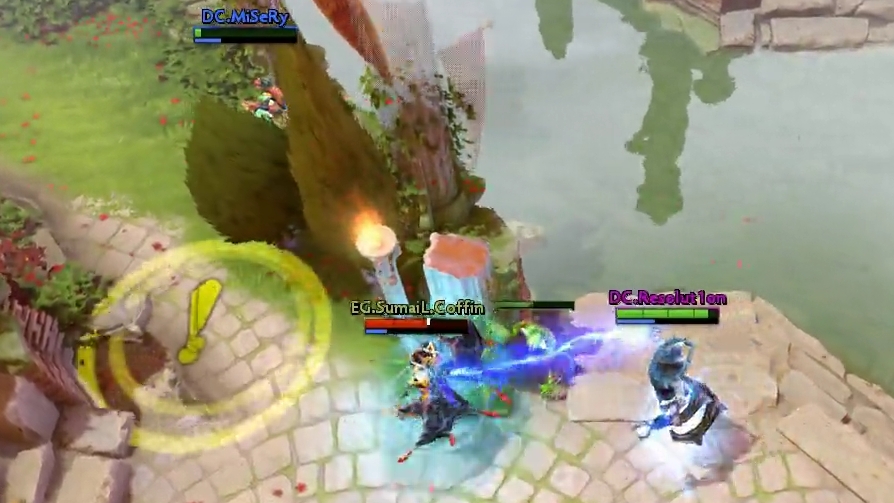
This play was only partially caught on the main stream, so you might want to load up the replay in-game and fast forward to the 8 minute mark to see it properly. Jumped on by EG.Sumail’s Queen of Pain at the bottom rune, DC.Misery’s support Naga Siren manages to break line of sight behind the only tree available. The fraction of a second of extra time this grants him is enough for Razor’s Static Link to drain Queen of Pain’s damage, allowing Misery to score a momentum-building kill for himself.
This was another close laning phase, but Wings were able to exploit the pickoff power of the Nyx Assassin to slow down Resolut1on on Clinkz. This was a game of near-constant fighting, but unlike the second game the trades were much more one sided. Wings.Shadow lived the dream as Faceless Void, going on an unstoppable tear with a run of perfect Chronospheres and miracle bashes. DC managed to regain some ground late as Clinkz picked up the damage items he desperately needed, but they looked frustrated and played like their nerves were fraying as fight after fight slid in Wings’ direction. By the 20 minute mark, they were getting flattened.
DC fought hard as the game went late but there was no overcoming Wings’ gold lead as the young Chinese team simply refused to make the kinds of mistakes that would let DC back into the match. One last perfect Chronosphere at the edge of DC’s base caught Resolut1on without buyback, and DC called GG.
Wings only needed one more game to win the International. DC took Mirana and Timber again despite having lost with it twice in a row, but the choice made sense: these are some of the best heroes in the game, and picks that they’re particularly comfortable with. If they were going to win the series, they needed to prove that Wings hadn’t entirely figured them out. DC also took Slark—one of Resolut1on’s best heroes—as well as Night Stalker to counter Wings’ Keeper of the Light and Vengeful Spirit to counter Batrider.
Wings were one step ahead of them, however, recognising that DC didn’t have what it takes to control Anti-Mage and grabbing him for shadow. They also picked up Axe for Faith_bian and made the surprising call to run it mid in response to DC’s decision to give Slark to w33 instead of Resolut1on. Faith_bian won his lane handily, forcing awkward rotations as DC tried to find a secure position to farm from.
Early trades went DC’s way despite w33’s bad start, taking advantage of Night Stalker’s nocturnal presence to build map control going into the midgame. But it wasn’t quite enough to control shadow’s farm, and Anti-Mage steadily built a substantial gold lead. Wings might be content to play outside the meta most of the time, but making space for Anti-Mage is one of the oldest strategies in the Dota playbook: and it paid off here.
DC started to make mistakes in their haste to capitalise on their early advantage and Wings took advantage of every one. The underdogs put in one last fantastic teamfight performance at the half-hour mark, but Wings were better: iceice demonstrated once again why teams that beat Wings don’t let him get Elder Titan. And when it came to it, with everything on the line, shadow delivered a game-ending, International-winning teamfight performance with Anti-Mage. Riding a 25k gold swing, Wings marched through DC’s outer defenses and into a historic International victory.
Less than a year after forming their team, these young unknowns had just won more than $9m. Their victory may fit International tradition—every even-numbered world championship has been won by a Chinese team—but nobody saw this coming. KeyArena exploded in light, confetti, fire and applause as Wings lifted the Aegis of Champions.
Joining in 2011, Chris made his start with PC Gamer turning beautiful trees into magazines, first as a writer and later as deputy editor. Once PCG's reluctant MMO champion , his discovery of Dota 2 in 2012 led him to much darker, stranger places. In 2015, Chris became the editor of PC Gamer Pro, overseeing our online coverage of competitive gaming and esports. He left in 2017, and can be now found making games and recording the Crate & Crowbar podcast.


